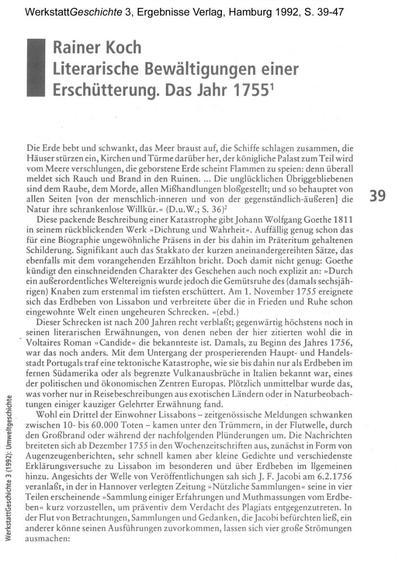Job Opening: Environmental History post-doc position at the University of Freiburg 🇩🇪 (3+3 year appointment, advanced German skills required)
#envhist
An online conversation with Steven High on Deindustrialisation and the Environment, organized by CNR-ISMed Istituto di Studi sul Mediterraneo and Sisam - Società Italiana di Storia Ambientale
**Tomorrow**, 11 December 2025, 4:00 p.m (CET)
The conversation is open to the public, and the transcript will be published in an upcoming issue of Global Environment
Teams link to join: http://bit.ly/48EjPW9
Tomorrow (December 10, 16-18) I'll be on introducing an essay of mine on the need for an "environmental history of knowledge" as part of the @eseh Environmental History Today webinar organised by the regional representatives for the German-speaking countries
http://eseh.org/envhistoday-webinars/environmental-history-today-webinars-2025/
🍂 O 'Late Fall Workshop', que organizamos anualmente com a Drexel University, regressa à Biblioteca Nacional de Portugal nos dias 17 e 18 de Dezembro. Pelo segundo ano, continuará a analisar a #violência enquanto objecto da história, sob o título "Materialidades da violência, história e historiografia".
✍️ Inscrições: martamacedo@fcsh.unl.pt
ℹ️ https://ihc.fcsh.unl.pt/events/materialidades-violencia-historia-2025/
#Histodons #Historiography #Materiality #Violence #Historiografia #Materialidades #EnvHist #HistoryOfScience #HistóriaAmbiental
working on a brief piece on the historical soundscapes of the Baltic Sea I came across this neat piece by Elizabeth von Arnin (1904, 180):
“Eine Glocke begann zu läuten, als wir zur Tür kamen. Er beantwortete meinen fragenden Blick und sagte, es sei die Gebetsglocke, die dreimal täglich geläutet wurde, um acht, um zwölf und um vier Uhr, so daß die verstreuten Bewohner des einsamen Landes, der Sämann auf den Feldern, die Hausfrau bei ihren Töpfen, der Fischer auf dem Bodden oder auf dem Meer, sie hören könnten, um sich geistig zu diesen Stunden im gemeinsamen Gebet zu vereinigen, “Und tun sie das?” fragte ich. Er zuckte die Schultern und murmelte, er hoffte es.”
It talks about the role of bell sound. If have space to do so I will try to put it in dialogue with Alain Corbin's _Village Bells_ (1998)
NEXTGATe, our #earlycareer interest group, is launching a new round of its Writing Support Program for emerging scholars in #envhist and #envhum
Deadline for submissions: December 11, 2025
For full details see:
http://eseh.org/call-for-writing-support-program-2026/
Call for Papers: Nature – Animals – War
The international conference “Nature – Animals – War: Relations and Interactions from Antiquity to the Present Day” will take place at TU Dortmund University on 16–18 September 2026.
The conference aims to bring together researchers from all disciplines and career stages to explore how nature and animals have shaped — and been shaped by — war throughout history. The idea is to bridge environmental history, human-animal studies, and military history in new, interdisciplinary ways.
Submission deadline: 31 January 2026
Send abstracts (500–750 words) + short CV to: naw-conference2026.us.fk17@tu-dortmund.de
Conference languages: German & English | Digital participation possible
https://www.portal-militaergeschichte.de/content/natur-–-tiere-–-krieg-nature-–-animals-–-war
#CfP #EnvHist #AnimalStudies #MilitaryHistory
h/t Kerrin Langer on LinkedIn
I wrote a short review of Marc Landry’s _Mountain Battery: The Alps, Water, and Power in the Fossil Fuel Age_! A full review will be published in the _Journal of Modern History_ in due time.
I'll be talking (briefly) about the #envhist of knowledge at the next ESEH Environmental History Today webinar on December 10
JOB: Assistant Professor in Environmental History, University of Warwick, UK
The Warwick University History Department seeks to appoint an Assistant Professor in Environmental History on a full-time and indefinite basis from 1 September 2026
The application deadline is January 5, 2026
JOB: 4-year PhD position in Environmental History and Agricultural History (South Africa, Turkey) at the University of Basel, Switzerland
The application deadline is 8 December 2025
The position is to be filled by 1 June 2026.
JOB: The History Department at the University of Birmingham, UK, invites applications for one fully-funded, four-year PhD position, under the auspices of the SNSF project “Feeding the Earth: Synthetic Fertilizers and the Remaking of Agriculture in the Nineteenth and Twentieth Centuries”
The application deadline is 8 December 2025
CfP: Colonial Sanitation Workshop, 2 June 2026 (online)
The deadline to apply is 8 December 2025
http://eseh.org/cfp-colonial-sanitation-workshop-2-june-2026-online
RUCHE International Conference - Call for Papers: “Gender and Environment” on June 11-12, 2026, Aix-en-Provence Cedex 2
The deadline for abstracts is December 15, 2025
http://eseh.org/cfp-ruche-international-conference-gender-and-the-environment
CfP: “The Past and Present of Climate Activism. Contestation, Democracy, and Change,” organised within the Horizon Europe project "RETOOL - Strengthening democratic governance for climate transitions"
Date and Place: 11-12 June 2026 at the School of International Studies, University of Trento 🇮🇹
Deadline for Abstracts: 9 January 2026: submission of abstracts (max 400 words, in English), accompanied by a short biographical note (max 150 words), to alice.dalgobbo@unitn.it with subject line “International workshop abstract”
The Environmental History Today Series continues on December 10 at 16:00 CET with "Early Career Scholars in Environmental History: Panel Discussion and Book Presentation"
Full details are available at: http://eseh.org/envhistoday-webinars/environmental-history-today-webinars-2025/
The ESEH seminars in the #envhist of #EasternEurope and #Eurasia are back on after the break. Join the team for the first event of the 2025-2026 season.
On November 12 Volodymyr Kulikov (University College London) will give a talk on the relations between geology and the body in the #Donbas coalfields, with Molly Brunson (Yale University) as a discussant.
Please register to get the Zoom link and spread the word https://forms.gle/dGfaXnsD4F86TJZy8
GLOBALIZING WILDLIFE is now available for pre-order with UNC Press! and what a cover!
My contribution is a chapter about otter conservation, juxtaposing the free movement of consumer goods and fossil fuel with otter containment in coastal California
Pre-orders save 30% with code 01SOCIAL30
https://www.uncpress.org/book/9781469694757/globalizing-wildlife/
#AnimalStudies #EnvHist #STS #conservation #bookstodon #shipping #oil #California #histodons
for my seminar "Cultures of the Environment" I am working towards student spending a session mapping an #environment of their choice, as a way to kickstart discussion about selective #representation and #mapping as #environing. Does anybody have suggestions for a reading to assign to students ahead of the meeting (ca. 20-25 pp.)? I have some material already, e.g. a 2017 #DeepMapping booklet by Bloom and Sacramento (which is however too long as an intro reading) and some work by and about Denis Wood (which is problematic, as I am afraid that introducing his conviction into class, as necessary, will lead the discussion way astray). I'd appreciate any suggestions.
Ein #Erdbeben & in der Folge ein Großbrand & ein #Tsunami zerstörten heute vor 270 Jahren #Lissabon fast vollständig – eine der verheerendsten #Naturkatastrophen der europäischen #Geschichte:
▶ Rainer Koch, Literarische Bewältigungen einer Erschütterung. Das Jahr 1755, #WerkstattGeschichte 3/1992, https://werkstattgeschichte.de/alle_ausgaben/umweltgeschichte/
#histodons #Umweltgeschichte #Katastrope #Catastrophe #envhist #envhum #Lisbon #earthquake #NaturalDisaster #Literatur #GreatLisbonEarthquake








